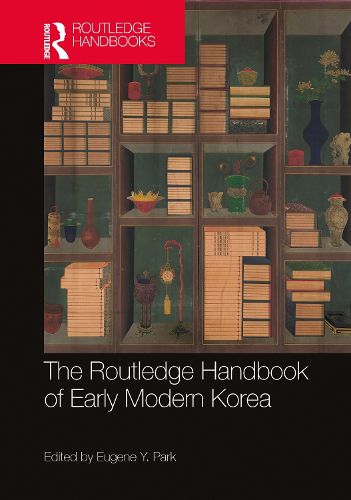Readings Newsletter
Become a Readings Member to make your shopping experience even easier.
Sign in or sign up for free!
You’re not far away from qualifying for FREE standard shipping within Australia
You’ve qualified for FREE standard shipping within Australia
The cart is loading…






Korea is a historical region of prominence in the global political economy. Still, a comprehensive overview of its early modern era has yet to receive a book-length treatment in English. Comprising topical chapters written by 22 experts from 11 countries, The Routledge Handbook of Early Modern Korea presents an interdisciplinary survey of Korea's politics, society, economy, and culture from the founding of the Choson state (1392-1897) to 1873 when its political leadership began preparing for treaty relations with Imperial Japan, the United States, and other Western nations.
Choson mirrors shared historical patterns among literate sedentary societies of early modern Afro-Eurasia. Various long-term developments that shaped early modern Korea include the completion of centralized bureaucratic governance as codified in the State Administrative Code (Kyongguk taejon); the appearance of regular rural marketplaces facilitating transactions in an increasingly liberalized economy; continuity of an aristocracy (yangban) from the medieval period (Koryo: 918-1392); a decreasing correspondence between ascriptive status and socioeconomic class; and the state and the elite's growing interest in encyclopedic knowledge and its dissemination while their monopoly on knowledge production weakened.
This handbook provides historical context for readers wishing to know more than just the "Korea" that evokes K-pop or North Korea's nuclear weapons, while Hyundai, Samsung, and other South Korean brands have gained visibility in everyday life. Interested English-speaking scholars, educators, students, and the general public without access to the large body of Korean-language works on Choson will find this book a valuable critical introduction to early modern Korea.
$9.00 standard shipping within Australia
FREE standard shipping within Australia for orders over $100.00
Express & International shipping calculated at checkout
Korea is a historical region of prominence in the global political economy. Still, a comprehensive overview of its early modern era has yet to receive a book-length treatment in English. Comprising topical chapters written by 22 experts from 11 countries, The Routledge Handbook of Early Modern Korea presents an interdisciplinary survey of Korea's politics, society, economy, and culture from the founding of the Choson state (1392-1897) to 1873 when its political leadership began preparing for treaty relations with Imperial Japan, the United States, and other Western nations.
Choson mirrors shared historical patterns among literate sedentary societies of early modern Afro-Eurasia. Various long-term developments that shaped early modern Korea include the completion of centralized bureaucratic governance as codified in the State Administrative Code (Kyongguk taejon); the appearance of regular rural marketplaces facilitating transactions in an increasingly liberalized economy; continuity of an aristocracy (yangban) from the medieval period (Koryo: 918-1392); a decreasing correspondence between ascriptive status and socioeconomic class; and the state and the elite's growing interest in encyclopedic knowledge and its dissemination while their monopoly on knowledge production weakened.
This handbook provides historical context for readers wishing to know more than just the "Korea" that evokes K-pop or North Korea's nuclear weapons, while Hyundai, Samsung, and other South Korean brands have gained visibility in everyday life. Interested English-speaking scholars, educators, students, and the general public without access to the large body of Korean-language works on Choson will find this book a valuable critical introduction to early modern Korea.